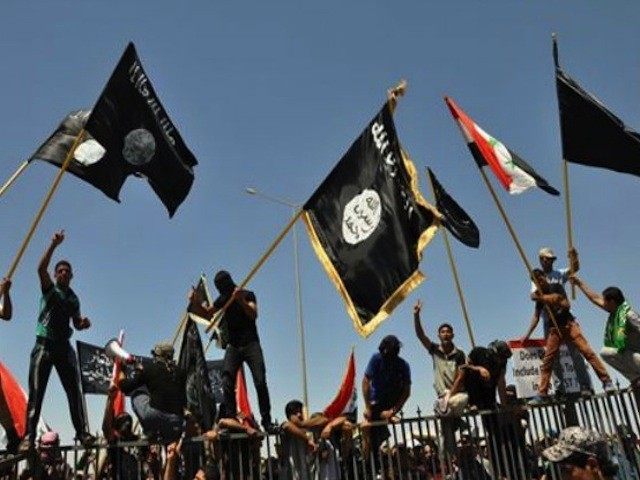 (Reuters) - Under the glare of the Saharan sun, a U.S. special forces trainer corrects the aim of a Chadian soldier as he takes cover behind a Toyota pick-up and fires at a target with his AK47 -- a drill that could soon save his life.
(Reuters) - Under the glare of the Saharan sun, a U.S. special forces trainer corrects the aim of a Chadian soldier as he takes cover behind a Toyota pick-up and fires at a target with his AK47 -- a drill that could soon save his life.
Chad is sending hundreds of troops to fight Boko Haram in neighboring Nigeria as part of a regional offensive against the Islamist group, which killed an estimated 10,000 people last year in a campaign to carve an Islamic emirate from the north of Africa's largest oil producer.
At the end of the exercise, a U.S. trainer shows the 85 Chadians the paper target peppered with bullet holes - many of them outside the drawing of a gunman. "Not so great," he says and orders them to do a round of push-ups -- in which American, Italian and Belgian trainers all take part, laughing.
The annual 'Flintlock' counter-terrorism exercises are a decade-old U.S.-sponsored initiative to bolster African nations' ability to fight militant groups operating in the vast ungoverned spaces of the Sahara with training.
"Even before the conflict with Boko Haram, we were preparing to face a group like them," said the commander of the Chadian troops, Captain Zakaria Magada, whose Special Anti-Terrorist Group (SATG) is equipped and trained by the United States.
"Boko Haram is just a militia of civilians. We are an organized army. They cannot face up to us."
Chad's armed forces are among the most respected in the region - a reputation forged during decades of war and rebellions, and honed in a 2013 fight against al Qaeda-linked Islamists in the deserts of northern Mali.
But many of its troops are still raw. In the first days of Flintlock, trainers from the U.S. army's 10th Special Forces Group walked them through basics like adjusting the sights of their weapons and properly cleaning them.
The trainers say there is a limit to what can be taught in 3 weeks of Flintlock but the objective of the exercise - which this year groups 1,300 troops from 28 countries - is building relationships among African nations and Western partners.
Efforts to construct a regional African taskforce to tackle Boko Haram have been hampered by lack of cooperation between neighboring countries. With that in mind, planners built into this year's Flintlock a cross-border scenario about tackling a militant group modeled on the Nigerian militants.
"It is all about African nations finding African solutions to their problems," said Major General James Linder, head of U.S. Special Operations Command Africa. "We cannot do that for them."
While France has deployed some 3,000 troops in Africa to combat Islamic militants, the U.S. military has retained a lighter footprint: providing equipment and training to allies while participating in a few targeted missions, such as the hunt for Lord's Resistance Army (LRA) leader Joseph Kony.
Amid calls for the U.S. army to become more directly involved, Linder says its focus on capacity building is part of a long-term vision. By 2050, Africa is forecast to have 2.7 billion people - a third of the world's population, he says.
"The global community needs stable countries in Africa and that can only happen through African nations themselves," he said.
'NIGERIAN ARMY JUST NEEDS WEAPONS'
The United States stepped up military cooperation with Nigeria following the abduction of nearly 300 schoolgirls by Boko Haram in the village of Chibok in April. However, Washington's refusal to sell Cobra attack helicopters, amid concerns over human rights abuses by the Nigerian military, angered some in Africa's most populous nation.
"If we had enough guns and ammunition, the Nigerian army could finish Boko Haram in a week," said a member of Nigeria's elite Special Boat Services (SBS) attending Flintlock. He said his unit, which has fought against the Islamist group, had received previous training from the U.S. navy SEALs.
As Nigeria, Niger, Chad, Cameroon and Benin prepare to launch their 8,700-strong taskforce next month, the United States is providing intelligence and equipment. A major shipment of helmets and bullet proof vests arrived in Cameroon this week.
U.S. special forces trainers, however, stress that equipment is not the most important factor in fighting insurgents.
"It's not about the weapons you're carrying, it's about the individual," said the U.S. major in charge of coordinating Flintlock, emphasizing the need to build relationships with the local population to isolate militant groups.
In the nearby town of Mao military doctors provide free medical treatment to locals and vets treat their animals. After Boko Haram attacked a village just 100 km away on the shores of Lake Chad this month, locals say they welcome the military presence.
Yet a decade after Flintlock's launch, some question the effectiveness of Washington's focus on training. Critics point to the presence of U.S.-trained Captain Amadou Sanogo at the head of the 2012 coup that plunged Mali into chaos, or allegations of rights abuses by some African partner armies.
But General Abdraman Youssouf Mery, commander of Chad's Special Anti-terrorist Group, said his troops had made good use of the Flintlock training during the 2013 war in Mali.
"The population in Mali were terrified of giving us information but we used what we had learnt from Flintlock: we helped them and gave them medical assistance," he said. "Slowly but surely, we won them over."















